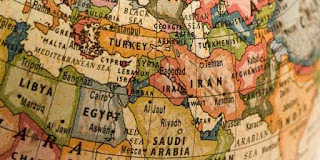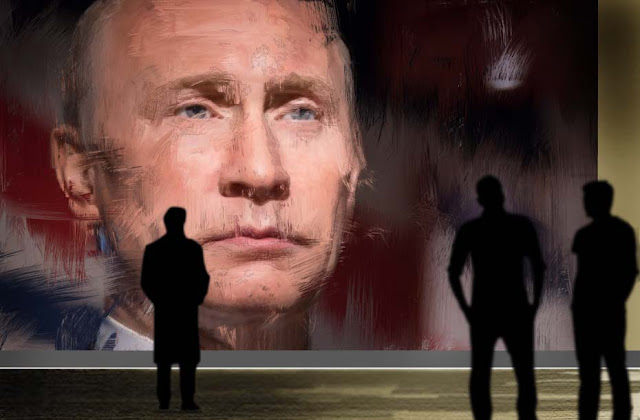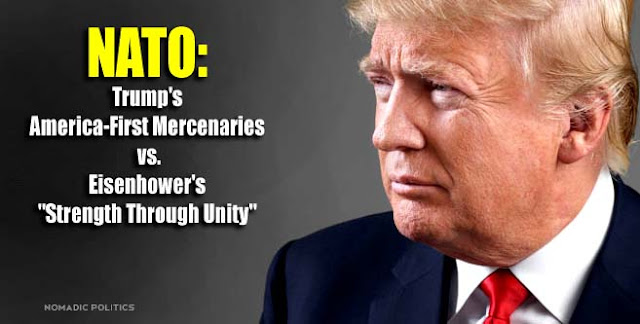by Nomad
Trump's past comments on NATO suggest that he would like to radically restructure the organization into something like a private security business. His critics say this is the worst time for such a dangerous power-play. On the other hand, nothing could make Russian president happier.
Back in 2013, Donald J.Trump -the tireless tweeter- appropriated Eisenhower's quote for his own obscure purposes.
It was, of course, before his announcement to run for president. Back before, he began to win primary after primary and, with the soul of Republican Party on the auction block, before the nomination of his party.
The Trump of 2013 wasn't much different than the Trump we see today. This tweet can, therefore, be written off as yet another pathetic example of Trump's absolute lack of circumspection.
After all, what person could better represent the
arrogance of privilege than the billionaire business who can tell an audience (with a straight face) that a paternal loan of a million dollars was a
"small loan?"
Is there a better man to represent the privilege of white male culture than Trump? And has there ever been a presidential candidate who so openly and so blithely put his business interests above all other principles?
As we reach the end of what has been a bizarre election, (to say the least) it's hard to point to any principles that Trump values. He has defiantly trashed any pretense that he is a principled type the moment he stepped onto the national stage.
The Power to Discern Right From Wrong
Quoting a respected Republican president like Eisenhower is actually a dangerous thing for Trump to do. It naturally invites comparison.














